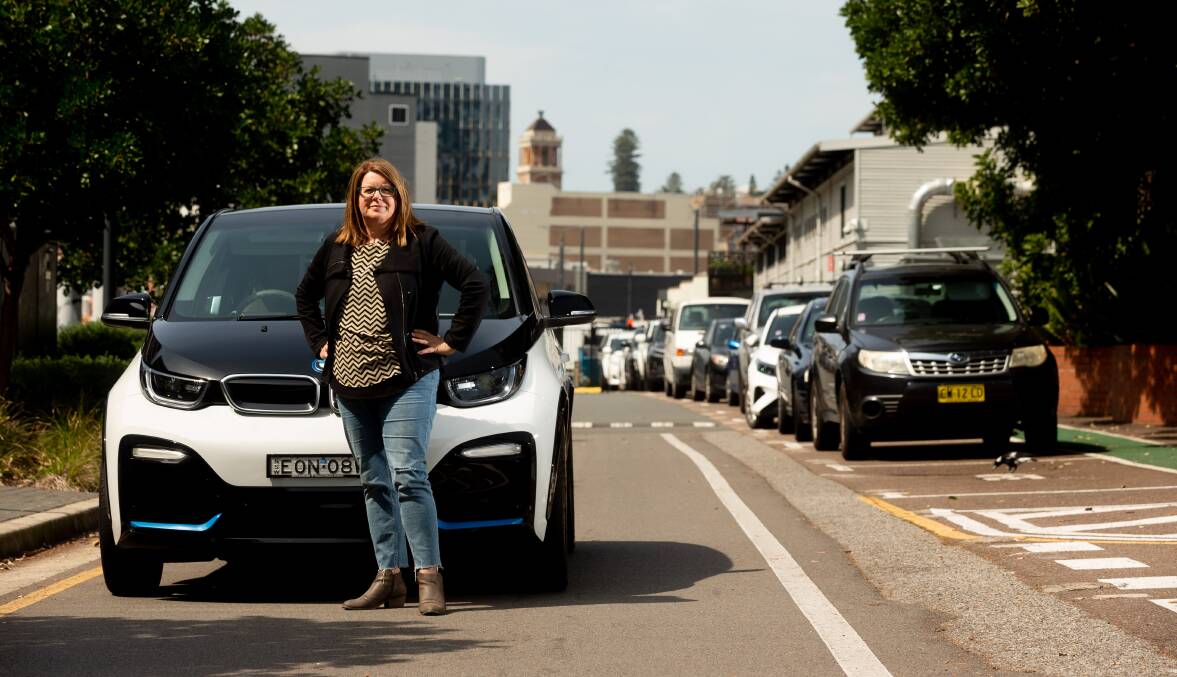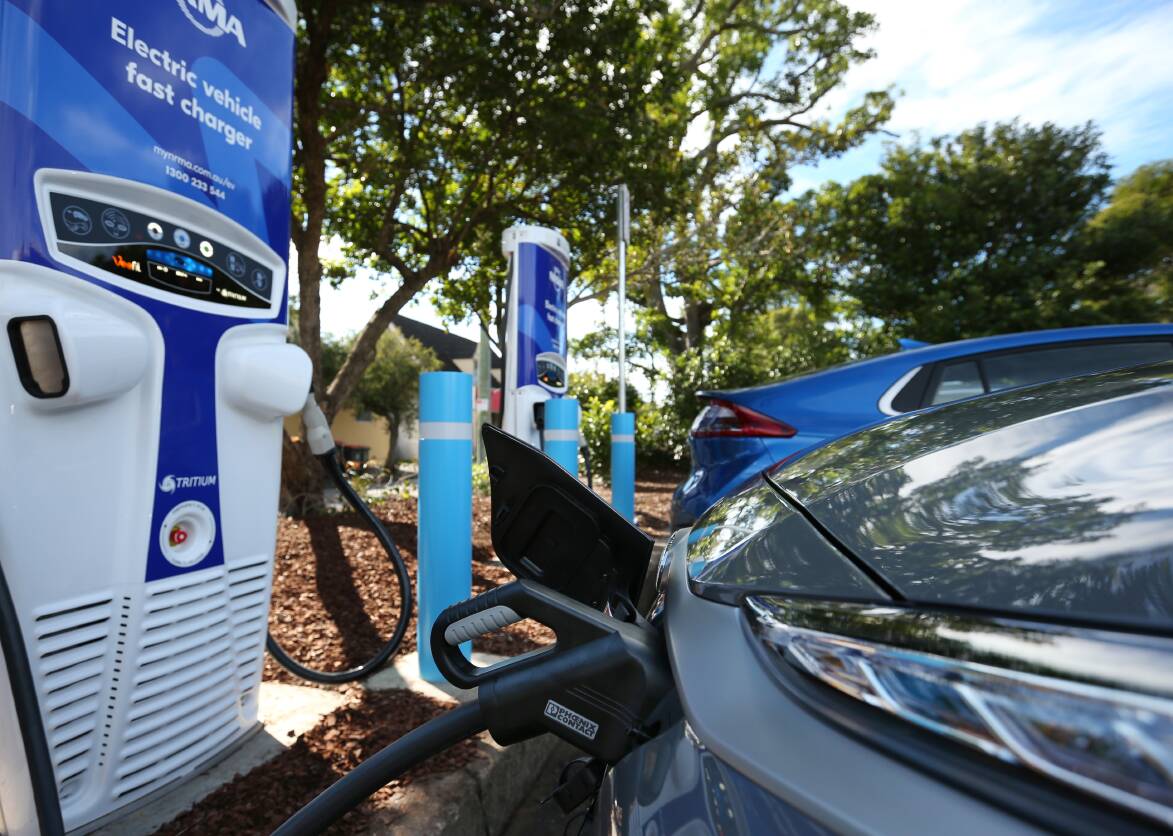Leah and Ben Stevens bought electric cars because they eliminate emissions and are fun to drive.
The Kotara couple are among a growing number of Hunter motorists who have switched to battery power as the technology improves and petrol prices stay stubbornly above $2 a litre.
NSW government figures show electric-only vehicle registrations in the Hunter have more than doubled in the past year, from 765 in September 2022 to 1819.
The 138 per cent increase mirrors a jump in national sales.
Electric vehicles accounted for 8.4 per cent of new cars bought in Australia in the first half of this year, up from 3.8 per cent in 2022.

Leah bought her BMW i3s for $73,000 in 2021 and Ben paid $81,000 for his long-range Tesla 3 last year.
The couple routinely charge them using solar power at home during the day.
"I like that they are zero emissions," Leah said.
"Our main reason for owning them is environmental, and also they're zippy.
"You don't have to pay for petrol."
Leah's BMW has a range of only 230 kilometres, while the Tesla can travel for up to 600 kilometres.
"My car is very much a city car. I'm going to drive it then come home and top it up every couple of days on the solar.
"That's why we got one city car and one long-range. We know that Ben's car is the holiday car."
The Electric Vehicle Council estimates about 109,000 battery-powered cars and 21,000 hybrids now run on Australian roads after 46,624 EV sales from January to June.
The figures show 36 per cent of Volvos and 9 per cent of BMWs sold in the first half of the year were electric.
Australia's cheapest electric car, the Chinese-made BYD Dolphin hatchback, costs $38,890 and will start arriving in showrooms before the end of the year.
MG, another Chinese manufacturer, sells its new MG 4 for $38,990.
Leah, a member of the Australian Electric Vehicle Association, said it would take time for electric cars to outsell petrol vehicles.
"People are still going to be buying petrol cars for a while yet is the harsh reality," she said.
"I think it's going to become kind of like cigarette smoking. It's going to become unpopular.
"I would also be mindful of your resale value.
"If you're going to consider making a change, depending on what you're using your car for, you don't want to leave it too late because you might end up with a value-less car."
In Newcastle local government area, EV registrations grew from 282 to 650 in the past year, though they still make up only a tiny fraction of all vehicles.
Newcastle has 606 registered EV passenger cars, compared with 101,795 overall.
The number of hybrid electric cars registered in Newcastle has grown from 2068 a year ago to 2686.

The rise in electric vehicles has led to a growth in public and private charging stations across the region.
Ampol has lodged plans with Newcastle council to build two EV charging points and solar panels at its Tudor Street, Hamilton, service station.
City of Newcastle operates public charging stations at No.2 Sportsground, Wharf Road and Laman Street.
The NRMA has chargers at Wallsend and Pokolbin, and dozens of Hunter hotels and businesses offer EV charging for customers or the public.
Newcastle Tourism Industry Group chairman Michael Stamboulidis said about 5 per cent of guests at his QT Hotel in central Newcastle drove electric vehicles.
"You're not doing yourself justice if you don't have charging ports," he said.
The QT has two chargers and plans to install another two.
Mr Stamboulidis said electric vehicles were among a suite of technological changes poised to transform the industry.
"There's a huge piece in there for technology and, if you don't move with it, you get left behind," he said.
"Newcastle is leaning into it."
Ausgrid partnered with City of Newcastle and tech company EVX to install Australia's first power pole-mounted EV charger at Dixon Park beach in December.
EVX now also has another "polecharger" at Hawks Nest and nine in Sydney.
Leah Stevens and her car will be at the Living Smart Festival at Speers Point on Saturday.







